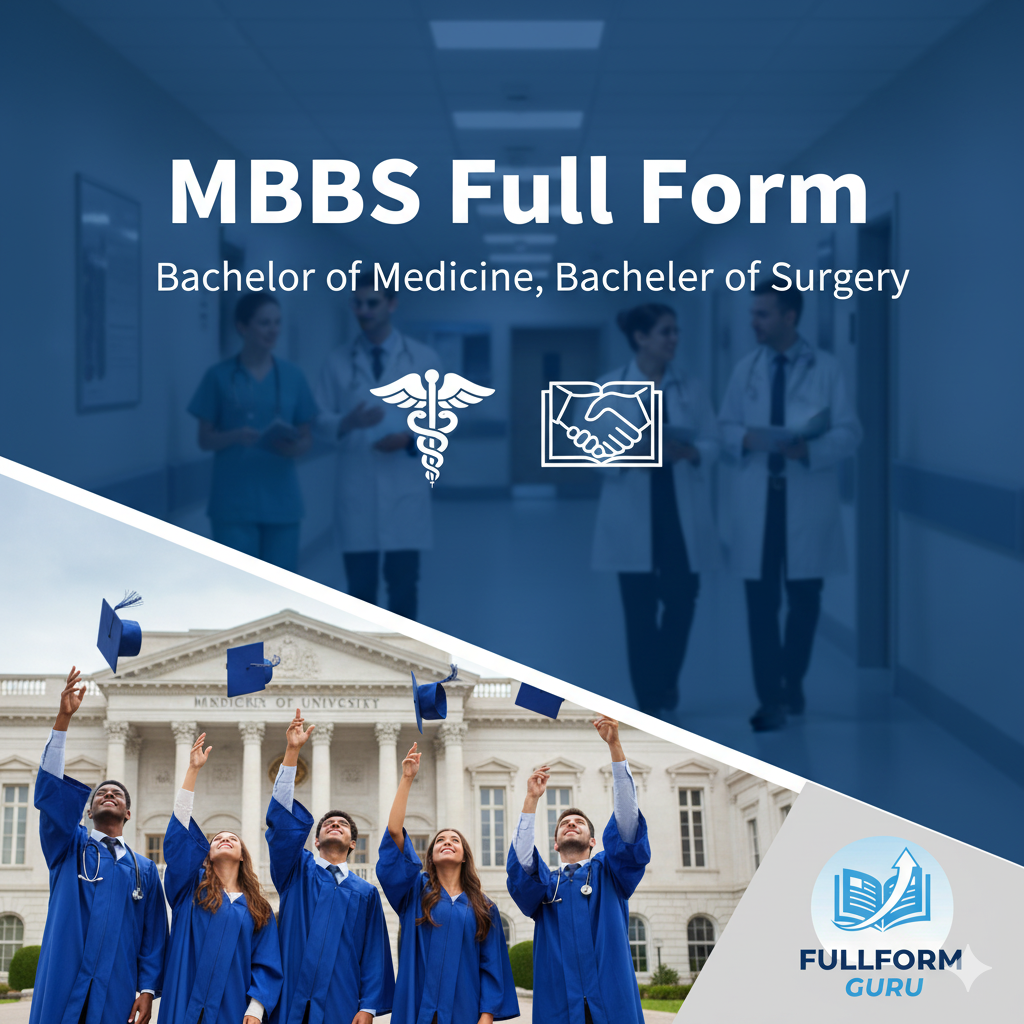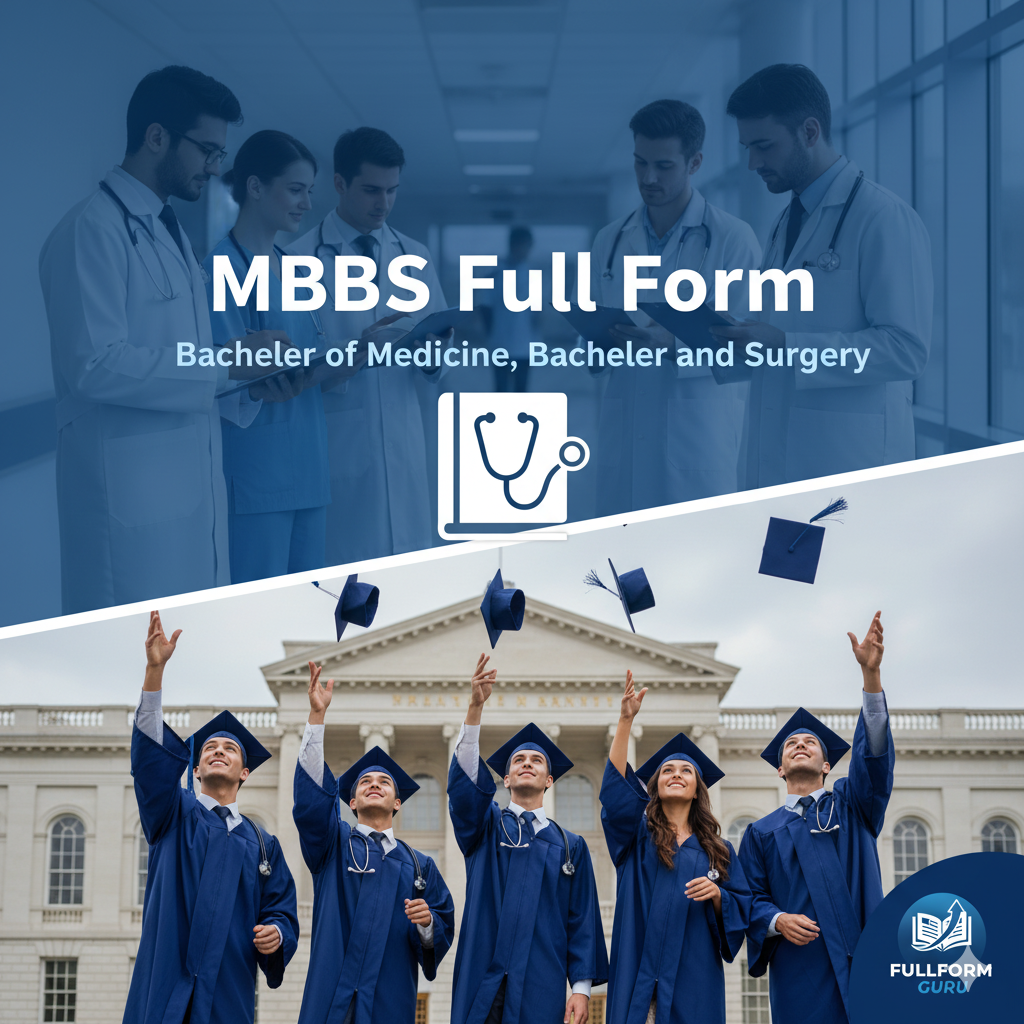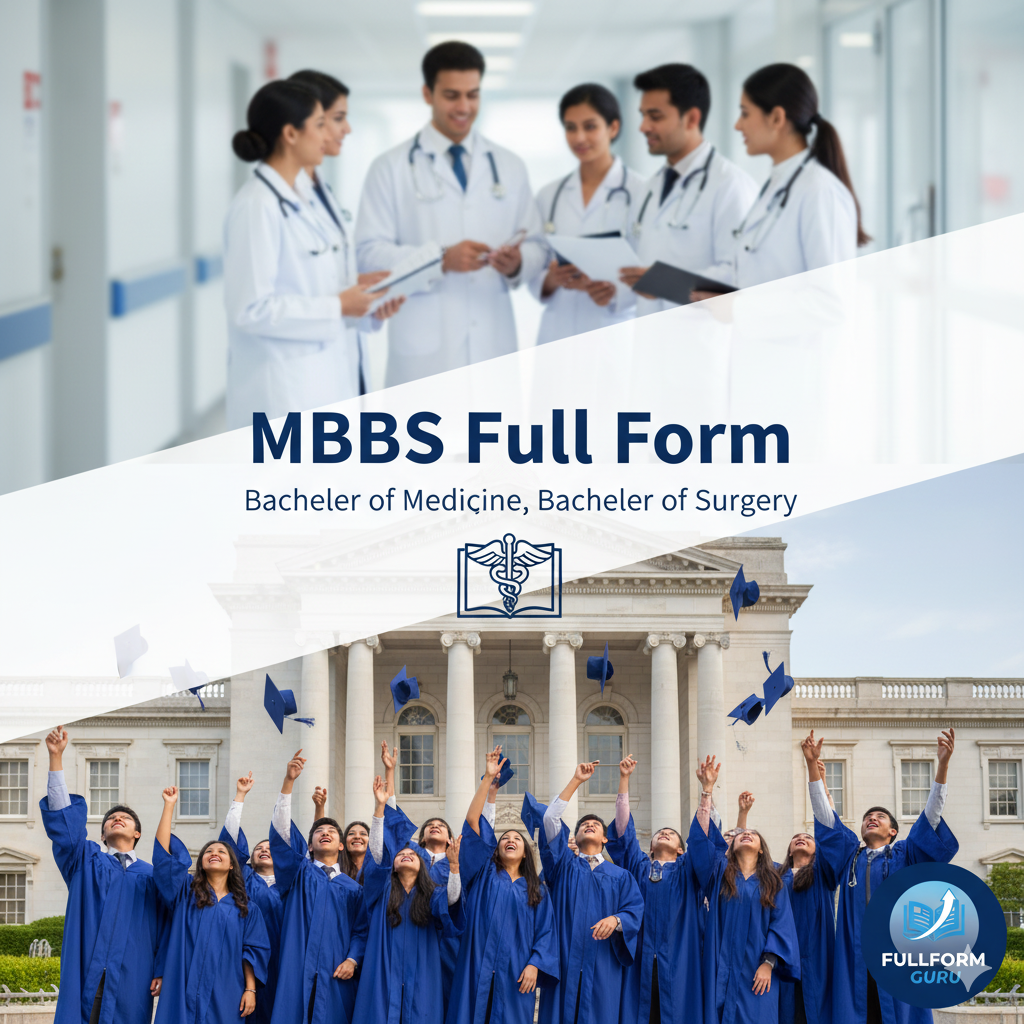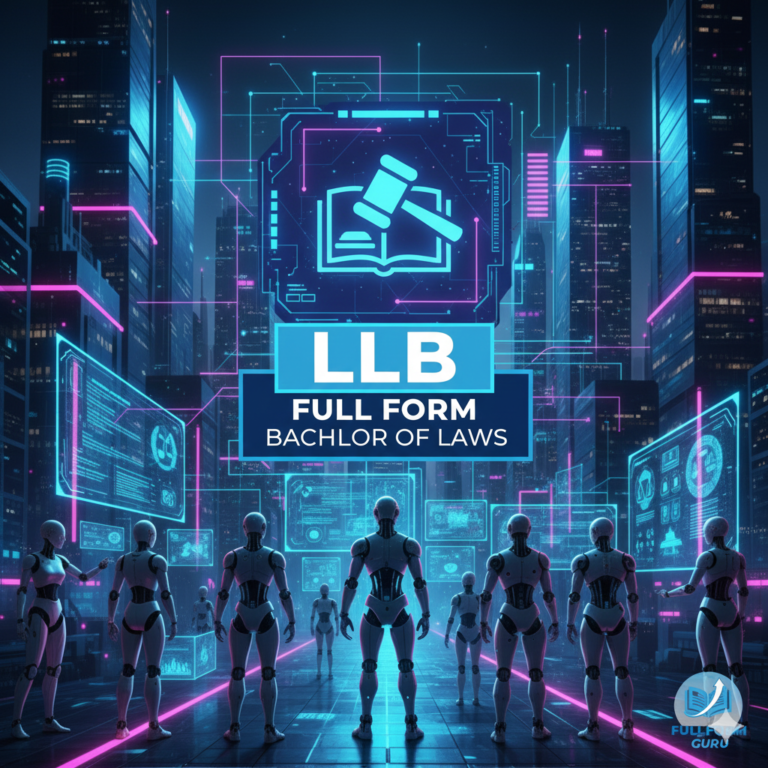
MBBS Full Form – Meaning, Course Details, Eligibility, and Career Scope
Introduction
The term MBBS expands to Bachelor of Medicine and Bachelor of Surgery. It is one of the most popular and globally recognized undergraduate medical degrees. Students who want to become doctors usually enroll in this program. It provides theoretical knowledge and hands-on training in medicine, surgery, and healthcare. The course equips future doctors with the essential skills needed to diagnose, treat, and care for patients.
What is the Full Form of MBBS?
In Full form, MBBS means Bachelor of Medicine, Bachelor of Surgery. Despite having two titles in its name, MBBS Full Form counts as a single combined qualification. It is the first professional step for students who want to enter the medical field and build a career as doctors.
Here’s a quick look:
| Term | Meaning |
| MB | Bachelor of Medicine |
| BS | Bachelor of Surgery |
This degree is recognized worldwide and is essential for practicing as a licensed medical doctor.
Course Duration and Structure of MBBS
The MBBS program usually takes 5 to 6 years to complete, depending on the country and university. The course combines classroom study, laboratory work, and practical hospital training.
Key Features of the Program
- Duration – 5 to 6 years, including internships
- Learning Style – Classroom lectures, lab experiments, and clinical practice
- Focus Areas – Medicine, surgery, anatomy, physiology, pathology, and community health
- Internship – Compulsory 1-year internship in hospitals for real-life experience
This balance of theory and practice helps students gain the confidence and skills required for medical practice worldwide.

Eligibility Criteria for MBBS Admission
To gain admission into an MBBS Full Form program, students must meet specific requirements. These criteria may vary from country to country, but the basics remain the same.
Common Eligibility Requirements
- Educational Qualification – Completion of higher secondary (12th grade or equivalent) with Physics, Chemistry, and Biology as main subjects
- Minimum Marks – Usually 50–60% in science subjects (varies by university)
- Entrance Exams – Many countries require passing medical entrance tests such as NEET (India), UCAT (UK), or MCAT (USA)
- Age Limit – Minimum age is often 17 years at the time of admission
Meeting these eligibility criteria ensures that only qualified and motivated students enter the field of medicine.
Subjects and Syllabus of MBBS
The MBBS course encompasses a broad range of subjects, providing students with both foundational and advanced medical knowledge and skills. The syllabus often includes pre-clinical, para-clinical, and clinical stages.
Main Subjects in MBBS
- Anatomy – Study of the human body structure
- Physiology – Functions of body organs and systems
- Biochemistry – Chemical processes in the human body
- Pathology – Study of diseases and their causes
- Pharmacology – Medicines and their effects
- Microbiology – Microorganisms and infections
- Community Medicine – Public health and preventive care
- General Medicine & Surgery – Diagnosis and treatment of illnesses and surgical procedures
| Stage | Focus Areas |
| Pre-clinical | Anatomy, Physiology, Biochemistry |
| Para-clinical | Pathology, Microbiology, Pharmacology, Forensic Medicine |
| Clinical | General Medicine, Surgery, Pediatrics, Obstetrics & Gynecology, Psychiatry, Community Health |
This syllabus ensures that students not only understand theory but also develop the practical skills required for treating patients.
Career Opportunities After MBBS
After completing an MBBS Full Form degree, graduates can choose from a wide range of career options in the medical and healthcare sector.
Common Career Paths
- General Physician – Treating patients with common illnesses and providing primary healthcare
- Surgeon – Performing surgical operations in hospitals and clinics
- Pediatrician – Specializing in child healthcare
- Gynecologist/Obstetrician – Focusing on women’s health and childbirth
- Psychiatrist – Treating mental health issues
- Pathologist – Working in labs to study diseases and samples
- Public Health Specialist – Working in community medicine and healthcare programs
- Medical Researcher – Researching to develop new treatments and medicines
- Hospital Administrator – Managing healthcare institutions
Global Opportunities
- MBBS graduates can work in government and private hospitals worldwide.
- They can also work as doctors abroad after passing licensing exams such as USMLE (USA), PLAB (UK), or AMC (Australia).
- Opportunities also exist in medical research, NGOs, and international healthcare projects.
With the rise of technology in healthcare, MBBS graduates are in demand globally, making it a rewarding and stable career choice.

Higher Studies After MBBS
Many MBBS graduates pursue further education to gain specialization in a specific field. Pursuing higher education increases knowledge and improves career prospects.
Postgraduate Degrees
- MD (Doctor of Medicine): Focuses on non-surgical specializations like General Medicine, Pediatrics, Psychiatry, etc.
- MS (Master of Surgery): Focuses on surgical fields such as Orthopedics, ENT, Ophthalmology, and General Surgery.
Super Specialization
After completing an MD or MS, doctors can pursue DM (Doctor of Medicine) or MCh (Master of Chirurgiae) for advanced expertise.
Alternative Higher Studies
Apart from MD/MS, MBBS graduates can also pursue:
- MBA in Hospital Management – For those interested in healthcare administration
- MPH (Master of Public Health) – For careers in global health and policy-making
- Medical Research Programs (PhD) – For those who want to contribute to medical science
Challenges During MBBS
Studying MBBS offers great rewards while presenting significant challenges. Students often face long study hours, countless lectures, and continuous exams. The vast syllabus requires consistent effort and strong memorization skills.
Another challenge is practical exposure. During clinical rotations, students deal with real patients, emergencies, and critical situations, which can be emotionally stressful. Balancing theory with practical training is not easy, and students need to develop strong communication, problem-solving, and decision-making skills.
MBBS students also face pressure to maintain discipline, manage time effectively, and keep up with the competitive environment. However, these challenges shape them into skilled and responsible doctors, capable of handling difficult situations with confidence.
Conclusion
MBBS, which stands for Bachelor of Medicine and Bachelor of Surgery, is one of the most respected and rewarding degrees in the world. It opens doors to multiple career opportunities in medicine, surgery, research, and healthcare management. From government hospitals to private clinics and international health organizations, MBBS graduates can build a successful and impactful career.
An MBBS degree provides a solid base for students, whether they plan to practice medicine, pursue further education, or work in healthcare administration.
In short, MBBS Full Form is not just a degree – it’s a path to saving lives, serving communities, and advancing medical science.




